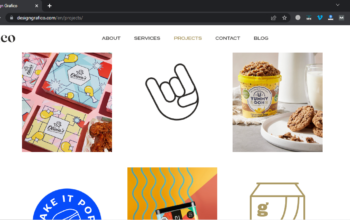GIROUX Ltd is a London-based insuretech firm that provides a predictive insurance analytics platform to insurance companies around the world. Ultragranular helped them quickly surpass all (Yes, all of them) their Google Ads competitors in the auction insights for most of their campaigns and they kept increasing the gap afterwards (They were given access to Ultragranular before its public release as part of our ongoing tests), reaching up to 69% impression share in the highly-competitive United Kingdom insurance ad market after one year of use. And best… they did it without breaking the bank.
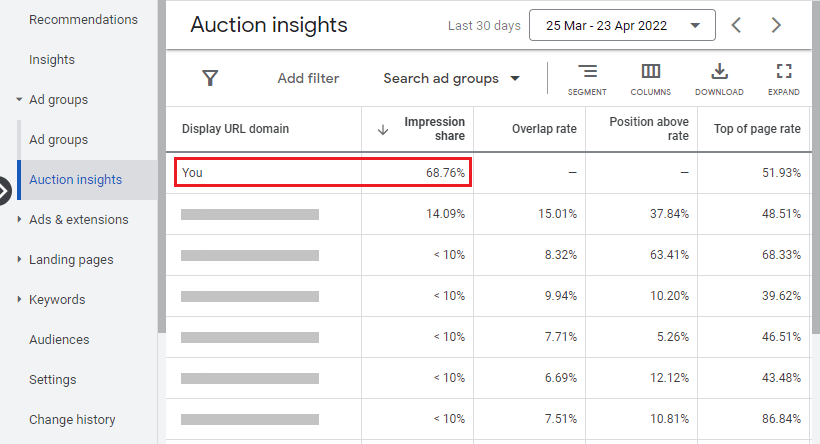
That’s what happens when you get so specific. Google won’t even charge you as much as you bid, yet you get to outbid your competitors because you keep just the keywords you need while they keep diluting their budget on random keywords. “What made the difference is, with Ultragranular, our staff was able to achieve an obsessive scrutiny of our search terms, adding every bit of irrelevant terms as negative keywords without wasting time week after week. Within two months, we were higher than all our competitors in the Google Ads’ “Auction Insights” across Europe,” says CEO Eric Giroux.
“It’s the repetitive process that helps the most.”
Eric giroux, CEO of giroux ltd
Of course, Google won’t tell you how much your competitors are bidding, but we can imagine Giroux’s competitors were bidding generously, as most of those listed in the insights were notoriously able to afford it. Giroux’s campaigns target keywords like “insurance analytics” and “MGA software,” which represent what their target clientele needs.
“It’s the repetitive process that helps the most,” says Giroux. “I think most marketers stop looking at the search term report (STR) a few weeks after they start a campaign and they miss out a lot. 10 months into the process, we were still finding new search terms we could have never suspected Google would match us for and adding them as negative keywords,” he adds. Giroux got multiple leads from their ads at a cost per lead their competitors would drool over.
Giroux’s UltraGranular experience is an illustration that so-called universal negative keyword lists are not enough. Of course, they did add a bunch of standard “job seekers” and “education” negative keyword lists when they launched their campaigns, but who would have suspected that their insurance underwriting keywords would also get traffic for loan underwriters (both industries share the same title) or that underwriting students taking tests would google the questions to find out the answer.
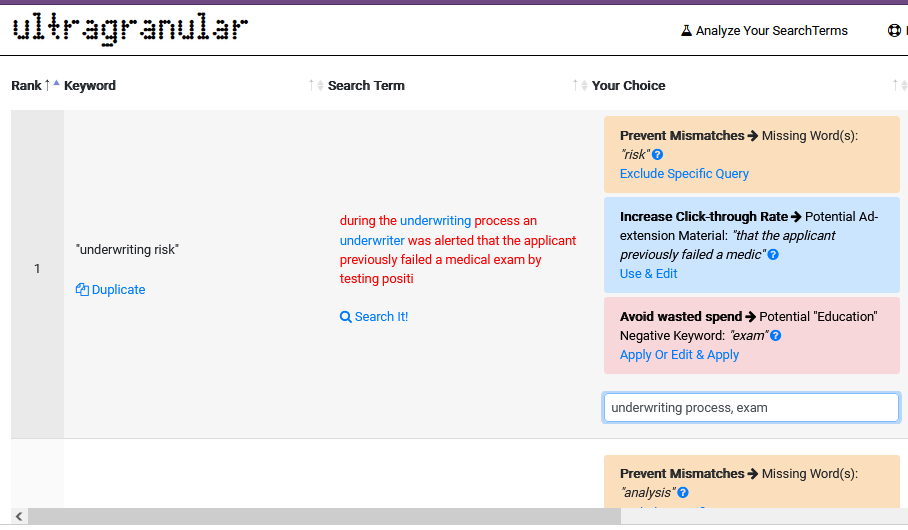
Or even worse, that their keyword claims leakage (a pro concept referring to the loss insurance companies incur when their rates aren’t well adjusted) would trigger ads for queries like “how to file a claim for a basement leakage,” obviously a consumer searcher that is not the target clientele of Giroux, which provides a B2B SaaS platform to insurance companies.
Results That Are Too Good To Be True?
Of course, such results can seem incredible, unless you reflect on how they were achieved. The key here is really extreme specificity, as Ultragranular founder Eric Bernatchez explains: “The goal of paid search is to get as close as possible to the query: “Hello, I’m your perfect prospect with a credit card in my hand,” the ideal query from the ideal searcher” he says. “And the reason why obsessive and recurring scrutiny of the STR works so well is simply that so many other campaign managers quit inspecting STRs early, thinking they found enough negative keywords, while others just won’t bother at all. We even spoke to an agency owner who was wondering what, exactly, negative keywords were!”
“With all the automation taking place in PPC, adding negative keywords ongoingly will become one of the few remaining ways campaign managers can stay relevant.”
eric bernatchez, founder of ultragranular
So Giroux simply won by very steadily doing what others presumably did only loosely or not at all. Likely, their competitors’ campaigns are handled by some of those money-collector agencies that just do not care about negative keywords or by in-house staffers unaware of their crucial importance.
Otherwise, in such a niche market as insurance analytics, chances are almost all participants in the keyword auction all use roughly similar ad copy, keywords and bidding strategies, placing them on the same battleground, at the same level. So when one player starts paying extreme attention to its STRs, they can get ahead like Giroux did and leave the other ones in the dust. “With all the automation taking place in PPC, adding negative keywords ongoingly will become one of the few remaining ways campaign managers can distinguish themselves, add value to what machines do, and stay relevant,” says Bernatchez.
They Also Gained In CTR
Additionally, after Google started offering a list of impression-only search terms in the fall of 2021, Giroux decided to start also adding pre-emptive negative keywords — keywords that got impressions, but no click yet, which impacted their click-through-rate (CTR) positively. Negative keywords are, by definition, irrelevant, so until they are excluded, they get very little or no clicks, leading to a low CTR. But when one excludes them regularly, it means only more relevant, more click-worthy terms remain and the CTR goes up.
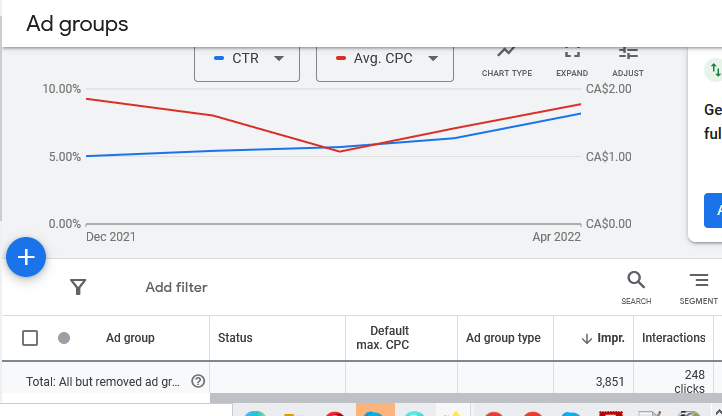
“That’s what we keep preaching: Negative keywords improve your CTR, they boost your conversion rate, they increase ad relevance and ultimately, they lead to a better quality score and more clicks for the same bid,” insists Eric Bernatchez, adding: “Have you noticed how your Bing or Google Ads account’s Recommendations page never recommends that you add more negative keywords? That’s certainly a recommendation any expert would make, but nor Google nor Bing promote it in your advertiser Recommendations page. Could it be because they are too good for you and not good enough for their business model? Obviously, Google and Bing need to find a market for their most unwanted search terms and that market is the naive advertisers and agencies who think that set and forget is good enough. If people were more consistent in curating their STR and added all the necessary negative keywords, Google’s income would drop considerably.”
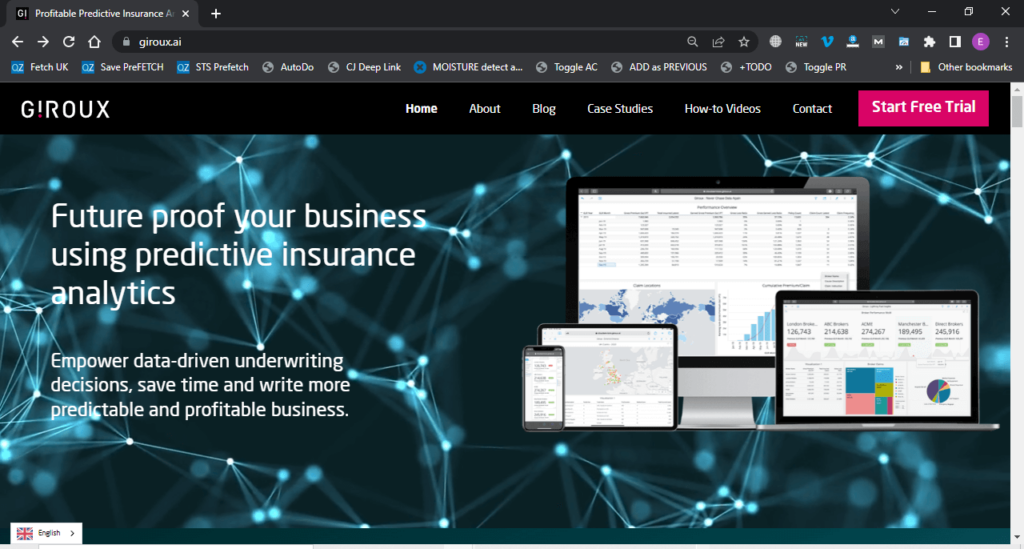
To learn more about Giroux, visit their website. As for Ultragranular, you can try it for free now without even signing up.
